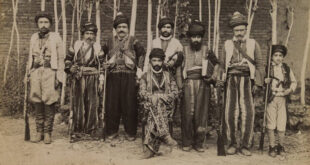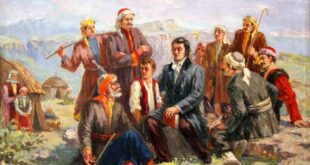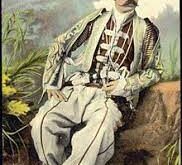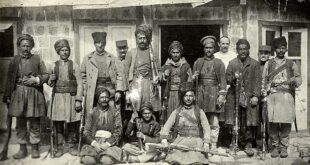I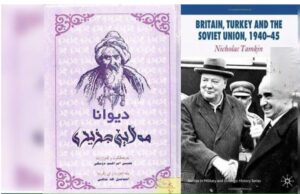
The diary book of the assassinated Kurdish journalist Mousa Enter (1920-1922) is concentrating on the historical events and narration about a great number of the Kurdish individual in the 20th century, some of the Turks and foreigner personalities that had relations with Kurd and its issues.
In 1956 Mousa had a restaurant in Istanbul; one day he saw two personalities stepped toward his restaurant, Mousa knew both Characters one of them was Professor Taher Taner who was Mousa’s instructor at Istanbul university and the second one was the former Turkish foreign minister Noman Menemegy Oglu both personalities had visited Mousa’s restaurant several times a week while Mousa gave them a good service. Later, the trust would build among them, one-day Menemegy Oglu narrated to Mousa; it was the summer of 1943 the Second World War time, The US president Roosevelt and the UK Prime Minister Churchill invited Inonu and me to Cairo in order to satisfy us participating at that war. However, both characters hadn’t trusted Turkey; moreover, they thought that if they equipped us we would be allied with Germany.
Inonu didn’t accept their proposals but Churchill and Roosevelt attempted to terrify us via the Kurdish issues. Churchill asked Inonu do you speak Kurdish whereas Inonu confused and couldn’t respond. Immediately, I had interfered with their discussion, I said we cannot speak Kurdish and there is no language called Kurdish in my country. But Churchill had prepared earlier and brought some orientalists with himself then he asked one of them what did he say is true sir? He responded no sir; the Kurdish language owns wealthy literature. For instance, I read a poem of Kurdish well-known poet Malay Jaziri; even we didn’t hear that name till that time, then Churchill asked the orientalist to translate into English, France and Turkey. In the French translated context didn’t find any foreign word except the French one, from the English context two or three Latin words had found but the Turkish context instead of (Dr and Ele) no other Turkish word had found. Most of the Turkish context was derived from Arabic, Farsi and some of the European languages. Finally, Churchill put the original Kurdish page and the three translated pages in front us that he meant “it is shame on you” then he said, gentlemen, see the wealthy of Kurdish language and its literature which is a language of a great part of your population, why are you denying this rich language? In the end, Menemegy Oglu told Mousa I have never seen such an embarrassing day during my post as a Turkish Foreign Minister.
 History of Kurdistan
History of Kurdistan
